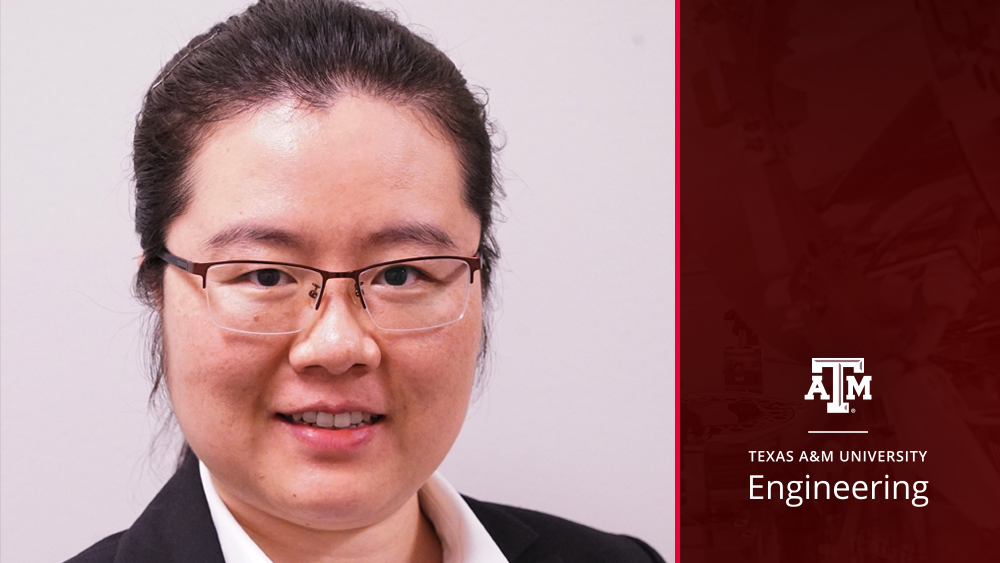
Dr. Limei Tian, assistant professor in the Department of Biomedical Engineering at Texas A&M University, has received the Trailblazer R21 Award from the National Institute of Biomedical Imaging and Bioengineering, part of the National Institutes of Health, to support her research developing biosensors for renal function monitoring.
"We are very excited about receiving support to do this work," Tian said. "Detecting acute kidney injury (AKI) at an early stage is very important but challenging."
Tian's group is researching biosensors, specifically those that can continuously monitor different molecules and physiological processes in the body.
"When sensing targets, we are very interested in acquiring and analyzing biochemical information in a continuous manner," Tian said. "Many proteins have been discovered and validated as disease-specific biomarkers."
However, existing biosensors cannot continuously monitor proteins. In many cases, protein concentrations can change rapidly, making knowledge about those levels even more valuable. Tian's project, a collaborative effort with Dr. Ayse Akcan-Arikan, medical director of inpatient dialysis services at the Texas Children's Hospital and associate professor at the Baylor College of Medicine, is focused on developing sensors to detect biomarkers for AKI.
"If we have an approach to continuously monitor the levels of molecular biomarkers in body fluids, it would provide very valuable information for diagnosis and treatment of many diseases, including AKI, heart injury, sepsis and respiratory illnesses such as COVID-19." Tian said.
Current biomarkers used in the clinic often fail to detect AKI at an early stage, and other biomarkers have been difficult to track due to a lack of technology to continuously monitor them, a gap Tian’s team is working to solve.
Arikan said intermittent monitoring in the clinic is typically done daily, meaning that the window of opportunity to detect AKI and intervene can often be missed.
"Continuous monitoring of AKI biomarkers will facilitate dynamic real-time assessments of renal function for optimal treatment," Arikan said.
The Trailblazer Award is an opportunity for new and early stage investigators to pursue research programs such as this that integrate engineering and the physical sciences with the life and behavioral sciences. High-impact projects will have the potential to transform understanding or practice by applying an innovative approach to an appropriate biomedical challenge to generate informative and impactful data or craft a solution to a significant problem. The team was awarded $589,100 for use over a three-year period.